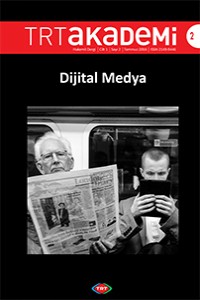Abstract
Bu çalışmanın amacı, Roland Barthes ve Levi-Strauss’un mit kuramlarını bir popüler kültür ürünü olarak ele alınan “God of War III” adlı video oyunu bağlamında karşılaştırmaktır. Çalışmada öncelikle tarihsel süreç içerisinde mitlerin işlevi ve “oyun” kavramının mitlerle ilişkisinden, ardından Levi-Strauss ve Roland Barthes’ın mit yaklaşımları ve analizinden bahsedilmiş, ardından “God of War III” adlı video oyununa mitsel çözümleme yapılmıştır. Her iki düşünürün mit yaklaşımları çerçevesinde öne çıkan öğeler incelenmiş ve orijinal Yunan mitolojisinden farklılaştırılarak yeniden üretilen mitlerin taşıdıkları hegemonik anlamlar açıklanmaya çalışılmıştır
Keywords
Abstract
The main purpose of this study is comparing the myth theories of Roland Barthes and Levi- Strauss in the context of the video game “God of War III” as a popular culture production. In the beginning of the study the functions of the myths and the relationship between “game” as a concept and myths in historical process have been discussed. Then a mythically analysis has applied to video game “God of War III”. The featured factors which have been featured in the frame of two philosophers’ mythical approaches and hegemonic meanings of the myths which were reproduced by differentiating from the original Greek Mythology have been explained.
Keywords
Details
| Subjects | Communication and Media Studies |
|---|---|
| Journal Section | Articles |
| Authors | |
| Publication Date | July 15, 2016 |
| Submission Date | February 15, 2016 |
| Acceptance Date | June 21, 2016 |
| Published in Issue | Year 2016 Volume: 1 Issue: 2 |
This work is licensed under Creative Commons Attribution-NonCommercial-NoDerivatives 4.0 International


